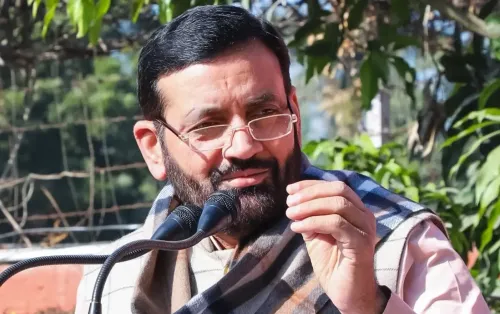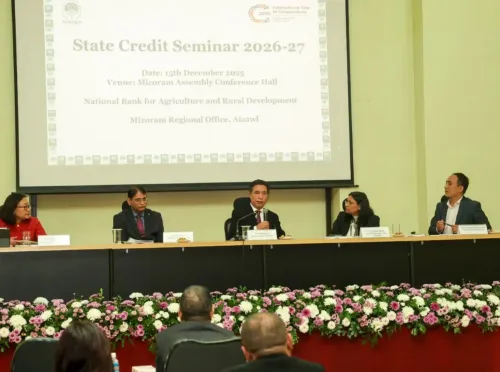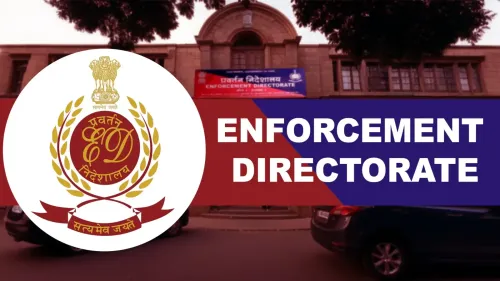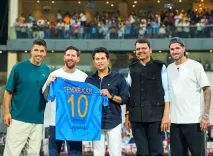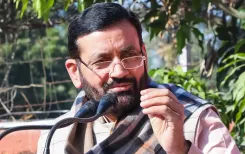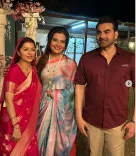Robert Vadra Discusses Namaz Restrictions in Sambhal: Respecting Diverse Ways of Worship (IANS Interview)
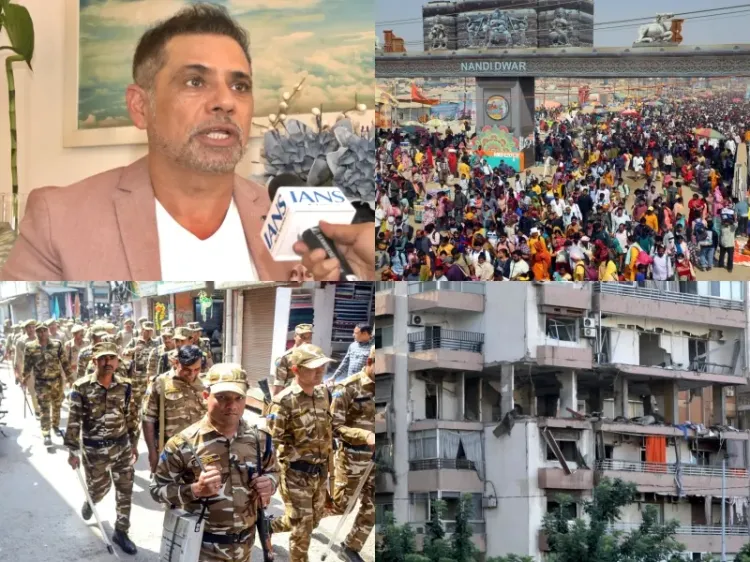
Synopsis
Key Takeaways
- Vadra criticizes the ban on public namaz in Sambhal.
- He emphasizes the importance of religious freedom.
- Criticism of divisive politics and its impact on national unity.
- Support for Bhupesh Baghel and Lalu Prasad Yadav amid political scrutiny.
- Calls for focus on real issues like inflation and farmers' rights.
New Delhi, March 27 (NationPress) In an insightful discussion with IANS, Robert Vadra, a businessman and spouse of Congress general secretary Priyanka Gandhi, voiced his apprehensions regarding the rising trend of divisive politics and the recent prohibition on performing namaz in public areas in Sambhal district of Uttar Pradesh.
He referenced the Mahakumbh, where vast numbers of devotees conduct prayers in their unique ways. Vadra emphasized the necessity of allowing individuals to practice their faith freely, without imposing unnecessary restrictions.
He criticized the increasing emphasis on issues like renaming places and mosques, arguing that such actions only serve to undermine national unity and secularism.
Vadra expressed support for former Chief Minister Bhupesh Baghel of Chhattisgarh and Lalu Prasad Yadav of RJD, labeling the actions of investigative agencies against them as politically motivated.
Highlights from the interview reveal his views on religious freedom, the forthcoming Bihar Assembly elections, and the current political climate in the country.
IANS: What is your perspective on the ban by the Sambhal district administration regarding offering namaz on roads or rooftops?
Robert Vadra: People have their own ways of praying. During the Kumbh Mela, thousands gather, and that is their method. Similarly, when more individuals come for namaz, they may lack space in the mosque, leading them to the roads. While it’s essential to avoid inconveniencing anyone on the roads, restrictions also apply to rooftops and the use of loudspeakers.
Even discussions about Aurangzeb face limitations. Surveys of mosques are conducted to ensure no idols or similar items are present. How can we advance in such an environment? How can we maintain unity and secularism? This is detrimental, and the younger generation is dissatisfied, contemplating leaving the country. Real issues, like those affecting farmers or inflation, are overlooked. This is unacceptable. Everyone should be allowed to pray according to their religious beliefs.
IANS: What are your thoughts on calls to remove the grave of Mughal Emperor Aurangzeb?
Robert Vadra: This is entirely irrelevant. What truly matters is inflation, and our focus should be there. Unity is paramount. We should pay attention to pressing matters, such as the farmers who protest and remain unheard.
Changing names of roads like Aurangzeb Road, conducting mosque surveys, and altering names of airports and railway stations won’t yield any meaningful change. I believe the younger generation disagrees with this approach. Why doesn’t the government address real issues?
IANS: What’s your opinion on the federal agency raids against former Chief Minister Bhupesh Baghel in the Mahadev betting app case?
Robert Vadra: My offices have also been raided, and I faced unfounded allegations. I visited ED offices 15 times and am a victim of such harassment myself.
As for Baghel, none of the allegations will hold up as these raids aim to distract from significant issues. This strategy of harassing individuals without any evidence is unacceptable. I witnessed similar acts in Punjab, where former CM and Congress leader Charanjit Singh Channi and his family faced harassment. The misuse of agencies is unethical, and I denounce such vendetta politics.
IANS: What future do you envision for the INDIA bloc, particularly in Bihar?
Robert Vadra: In each election, rivals are targeted through probe agencies. This is evident with Lalu Yadav’s family in Bihar. I foresee a promising future for Congress if it collaborates with Lalu and Tejashwi Yadav in the upcoming Bihar Assembly elections. A pact would also benefit Lalu Yadav's family.
For Congress to enhance its performance, leaders must work diligently for the people and fulfill their promises.
IANS: There’s much discussion regarding Rahul Gandhi not attending Mahakumbh. Do you believe he should have participated?
Robert Vadra: We do not engage in media spectacles or displays; we believe in prayer. If we attend Mahakumbh and create disruptions or inconvenience for pilgrims due to VIP arrangements... we can visit at any time. Our actions are not for public display. We do not need to showcase our secularism. Rahul Gandhi can visit any holy site when he chooses, ensuring it does not disturb others.
IANS: Do you believe Palestine is facing injustice?
Robert Vadra: Absolutely, the situation is unjust. Individuals on both sides experience distress, with politics exacerbating the situation... bombs being dropped on hospitals and the loss of innocent lives, including women and children, is unacceptable.


